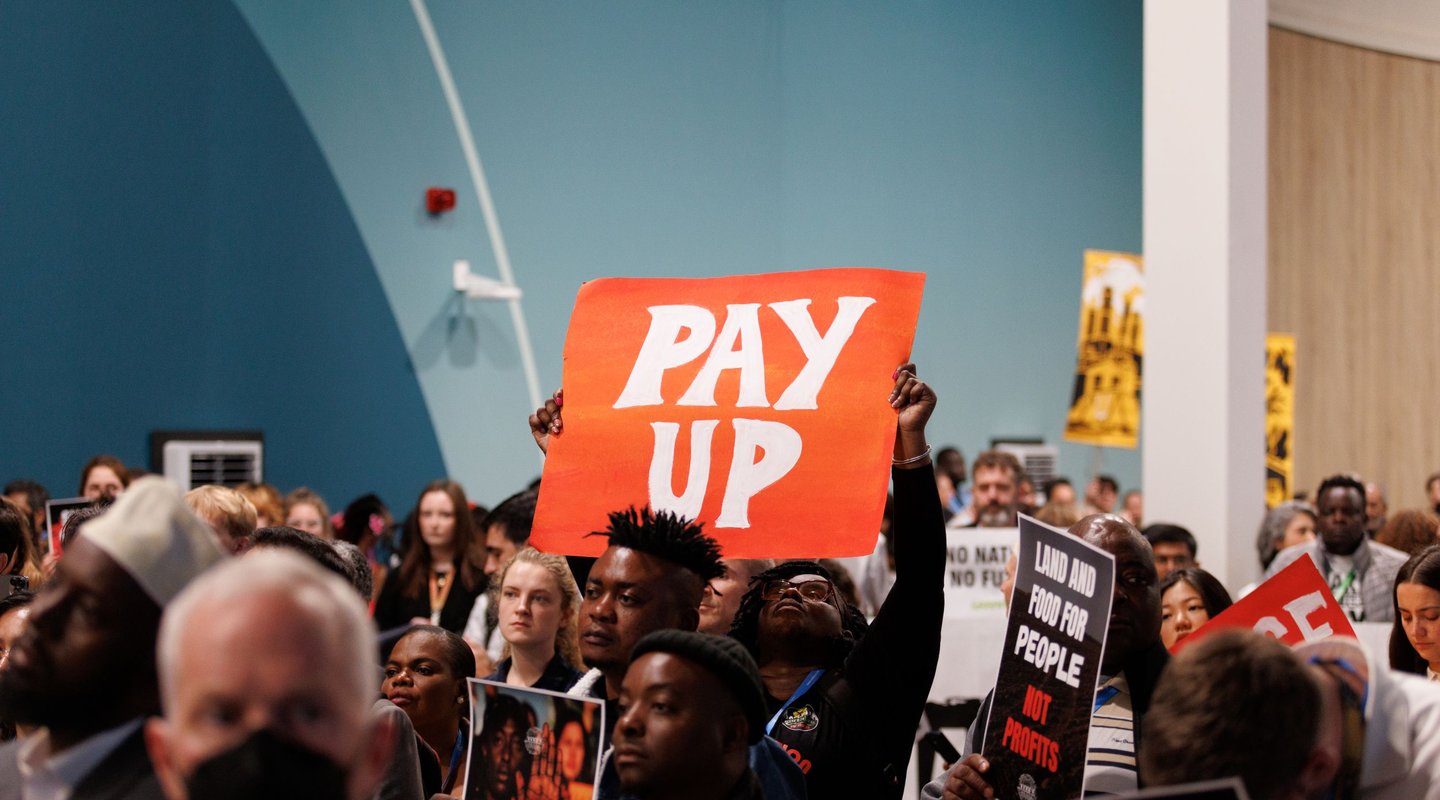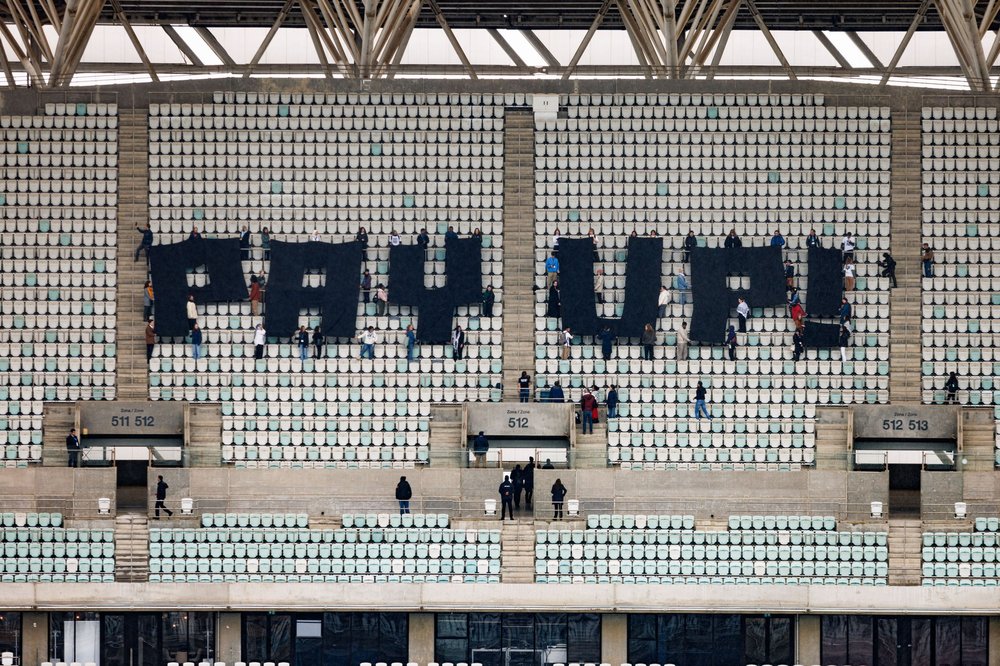- Take action: demand polluters must pay
- Find out about climate action
- What is COP and why is it important?

Bianka Csenki/Artivist Network
What is COP and why is it important?
COP stands for the Conference of the Parties – the decision-making body of the United Nations Framework Convention on Climate Change (UNFCCC). Every year, governments from nearly every country gather to negotiate how the world responds to the climate crisis.
COP is important because the decisions made there affect all of us – especially people living in poverty who are already facing the most severe climate impacts. It’s where climate promises are made – or broken. It’s also where civil society, Indigenous peoples, youth leaders and organisations like Oxfam push for bold, just, and urgent action.
What is COP30 and why is it important?
Over 1 million people around the world are calling on governments to make rich polluters pay. At COP30 in Belém, our global petition was officially updated from last year.
The petition was handed over to Brazil’s Minister of Environment and Climate Change, Marina Silva, by Oxfam Brazil’s Executive Director, Viviana Santiago, and Make Rich Polluters Pay activists Hilda Nakabuye, Pavel Martiarena, Erica Monteiro, and Grace Malie.
Why does Oxfam attend COP?
Bianka Csenki/Artivist Network
